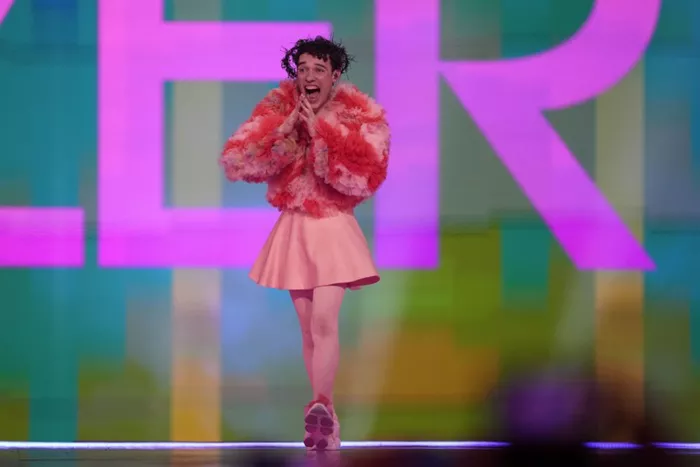In a historic moment, Switzerland claimed the winner’s trophy at the 68th Eurovision Song Contest, with Nemo triumphing with their song, “The Code,” becoming the first openly non-binary Eurovision champion. They surpassed Croatia, who secured second place, with Ukraine taking the third spot.
During the trophy acceptance, Nemo expressed, “I hope this contest can continue to uphold its promise to stand for dignity and peace everywhere.”
This victory marks Switzerland’s third win in the competition, with their last triumph dating back to 1988 when Celine Dion won with “Ne Partez Pas Sans Moi.”
Meanwhile, the UK’s Olly Alexander landed in 18th place with his song, “Dizzy,” eliciting mixed reactions from viewers and receiving no public votes. Despite this, he humorously quipped about his slim odds of winning, stating, “My odds for winning are at one per cent. But that’s fine. It’s better than zero.”
The evening encountered an unexpected incident when the Netherlands’ entry, Joost Klein, faced disqualification from the competition. Allegations surfaced of threatening language directed at a female crew member backstage, leading to his removal by Eurovision organisers, the EBU (Eurovision Broadcasting Union).
Prior to the Grand Final, the Netherlands announced their decision not to allocate points from their jury to other contestants, citing a departure from their anticipated evening. “We do not feel the need to hand out the points of the Dutch jury,” they stated. “We imagined this evening very differently.”
Further complications arose as entrants from Ireland, Portugal, Switzerland, and the UK engaged in “crisis talks” with the EBU, contemplating withdrawal from the competition while demanding Israel’s disqualification. This tension was palpable during Israel’s performance, marked by loud boos from the audience and a segment where many attendees turned their backs during the country’s vote announcement.

